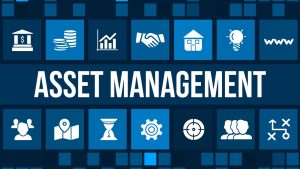The construction industry is one of the largest sectors in the world and is also widely asset-centric. It plays a vital role in developing a country’s economy and socio-political objectives and has laid the foundation for modern civilisation to be developed. Multiple other industries rely on the construction it to build various buildings and structures, be it roads, houses, educational institutes and more. Despite this, many people underestimate the construction industry’s significant role. Taken in another way, understanding the multifaceted roles of a construction company provides one way to assess the best way a manager can streamline functions and find out what form of sustainable practices can be adopted. This blog will provide an introduction to comprehensively understanding the construction sector.
Types of Construction

While construction is an aspect in almost any sector, it specifically caters to making buildings, infrastructure and industrial works in the public and private fields. When looking at the bigger picture, however, there are two broad construction categories. They include:
Non-Residential Construction
This includes commercial construction and may include heavy engineering and industrial construction. While small companies can do the former, the latter two are construction projects typically carried out by larger corporations as they can be extremely costly. Hence, in addition to building things like schools, institutions, and churches, non-residential construction also includes building important infrastructures for the public, such as dams, highways, railways, wastewater and other utility distribution networks. In terms of industry construction, this is relatively a construction form least used, although it holds an important role. This is because it includes offshore construction projects related to manufacturing plants, power generation, chemical processing and more. This type of construction specifically requires a higher level of expertise to be put into planning, designing, budgeting and constructing the project.
Residential
As noted by the term, residential construction refers to projects that cater to building homes for individuals or families. Hence, apartment complexes, houses, and garages are a few examples that residential companies would construct. Residential projects do not have to be carried out by a business. It could be an initiative by the land owner itself, although contractors often do it for them, or it could be a project mandated by the government to provide social housing.
Three Reasons Why Constructions Companies Are Preferred Over Private Contractors?

The thing with the construction industry is that anyone can carry out construction projects. As previously mentioned, a construction project can be executed by the land’s sole owner, a private or public contractor or a construction company. Out of the three, construction companies hold a special place. Here are why:
They Offer More Expertise
A public or private contractor would have limited experience in terms of assessing which practices are most sustainable and more cost-effective and may struggle to stay up-to-date on quality control measures. A construction company, however, would employ many experts when executing construction projects. There would be dedicated teams to design, pitch, budget and execute the entire project, which would be updated on the latest trends and regulations on the specific role of construction they are in. Moreover, considering that construction companies have more opportunities for employees to enhance their skills and be better, there is a higher level of knowledge and expertise a company would provide in comparison to other key players.
Companies Have a Higher Tendency to Meet Quality Control Mechanisms
Companies have a higher burden to meet construction quality standards and practices in their locality whilst meeting various rules and regulations. Therefore, in the event they ignore such standards, they face the risk of being barred from future construction activities, especially if the government carries out a random check as they are entitled to. Consequently, employees in construction companies are always on their toes to ensure no such careless mistake occurs. While, in theory, this may apply to individual contractors, the fact that they do not have an accountability mechanism may mean there is no strict incentive to take precautions. Even in the absence of the government, construction companies have to answer to their management.
More Accurate and Detailed Project Planning
An essential step in construction project planning is to stipulate a clear time duration and budget. A construction company does a better job in this since it would have the relevant resources and expertise to construct a detailed outline of projects. Given the experience of the company and the multiple kinds of people employed in it, construction managers would be able to account for different situations in their planning. Companies that make the costly yet worthy investment employ technology and may also find it easier to streamline this process while not undermining the project plan’s accuracy or reliability. All this leads to a far more effective project implementation phase where they can guarantee the project runs smoothly.
Services Construction Companies Provide
All businesses have exclusive services offered by their respective industries. Similarly, the construction industry deals with multiple roles not held by others. Here are some of them:
The Obvious-Building
The construction aspect of a company requires them to build assets. However, the painstaking process that comes with building is important. Construction companies must listen to the client’s requirements and comprehensively design a detailed plan to demonstrate how the end product would look like. They need to consider what is sustainable for the environment while being able to meet the financial budget of their clients. As many construction projects are long-term, requiring at least two years, it is of the utmost importance that the construction company remains motivated, upholding standards of integrity in every respect.
Carry out Transformations and Renovations
What many people often forget about construction is that it also includes carrying out renovations, transformations and improvements. In comparison to purely construction projects, renovations are less time-consuming. Resident construction assets occasionally remodel and renovated for multiple reasons. It could be due to the importance of redesigning homes to a commercial world that wants its consumers to feel as if it meets all the latest trends. Similar to building work, this also requires a comprehensive plan to be followed with a clear idea of the timeline of the renovation phases that need to take place.
Safety Management
An integral responsibility of construction companies is safety management. This has two aspects: long-term and short-term. Short-term safety refers to the precautions construction companies implement during the construction of the building or asset. For instance, employee safety is a key aspect of the construction phase. The inclusive phase also ensures the public around the construction site is safe. Hence, implementing mechanisms warning them that construction is ahead is important. This is especially true in the case of repairing roading assets, for example. Long-term safety refers to the safety of the construction itself. The foundation of asset need to be strong to last for years.
How Can Technology Help the Construction Industry?

With the high risks associated with the construction sector, integrating technology to guarantee safety, sustainability, and quality allows companies to increase their trust in the public. Here are a few technologies construction companies should invest in:
Digital Twin
Construction workers traditionally used Building Information Modeling (BIM) to design and map out systems. The issue with this was that there had to be multiple BIM for each and every system. For example, there was one BIM for the pipeline and another one for the vent system. A digital twin, however, makes it much easier for construction managers to view all models easily in one integrated platform. It additionally provides a digital projection of how people can interactively use the space in the completed construction project at the very start of the project allowing managers to take key decisions on the effectiveness of the space. Digital Twins has great potential to bridge the gap between design and management after the project is completed.
Internet of Things (IoT)
IoT is a digital device that acts alone, although it can interact with humans and work alongside each other. Companies incorporating artificial intelligence (AI) and machine learning (ML) capabilities can utilise the data collected by IoT to analyse and provide insights more reliably. This is particularly helpful in completing projects on time as IoT monitors the construction plan’s progress, ensuring daily targets are met. They also play a key role in safeguarding employees on the construction site as they wear IoT wearables. This makes it easy for teams to send help in events where an employee needs assistance as soon as possible. IoT moreover offers a mechanism to monitor levels of carbon emissions in its construction work. This results in companies being more mindful of their operations.
Data Analytics
Construction companies rely on data to make important decisions. This includes whether they construct a new building or asset or do renovations or repairs. In the latter, the role of data analytics is clearer as it assists in carrying out root cause diagnosis and providing the best way to alleviate it. In its role during the construction phase, however, data analytics is multi-faceted. For example, data analytics help construction managers stock inventory and assess changing consumer trends and market conditions. It is also a way to easily stay track of changing regulations and quality control mechanisms, ensuring construction companies comply with government rules. Most importantly, data analytics provide insights into constructing a robust asset. It allows construction managers to use the insights gained through digital twins and build something which can withstand different conditions guaranteeing assets with longer life cycles.
Construction is at the Heart of an Economy

A country’s economy will struggle without roads, water and wastewater treatment facilities and even homes. The longer duration to travel from one place to another to not being able to treat water or wastewater locally, a country will unnecessarily have to incur costs to ensure its citizens are safe. Hence, regardless of whether a construction company is doing a residential or non-residential project, its activities play an important role in a country’s economy.






